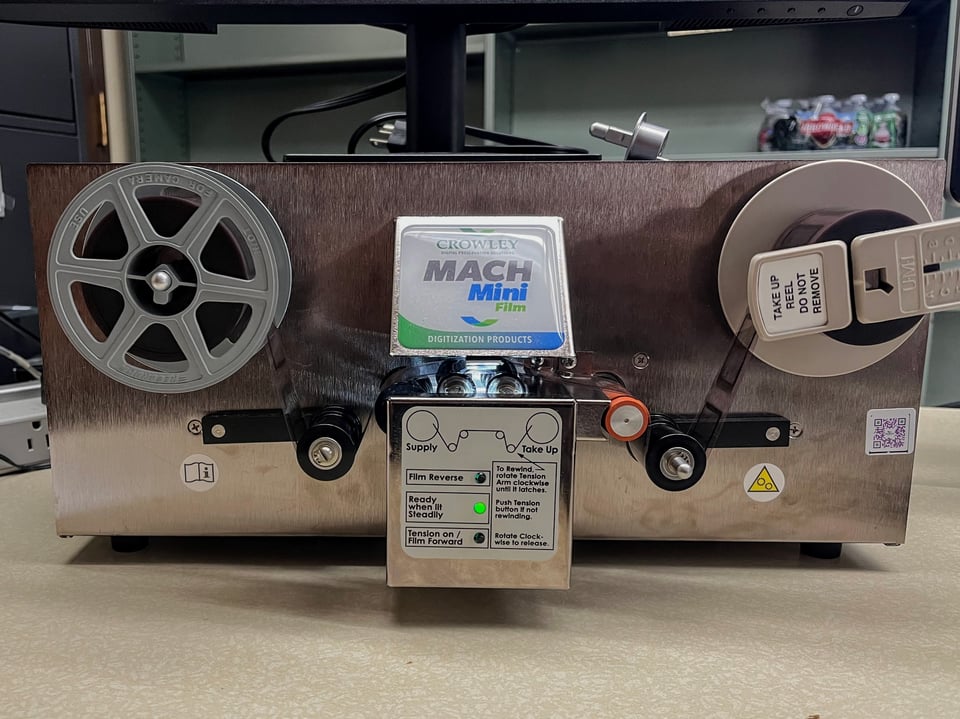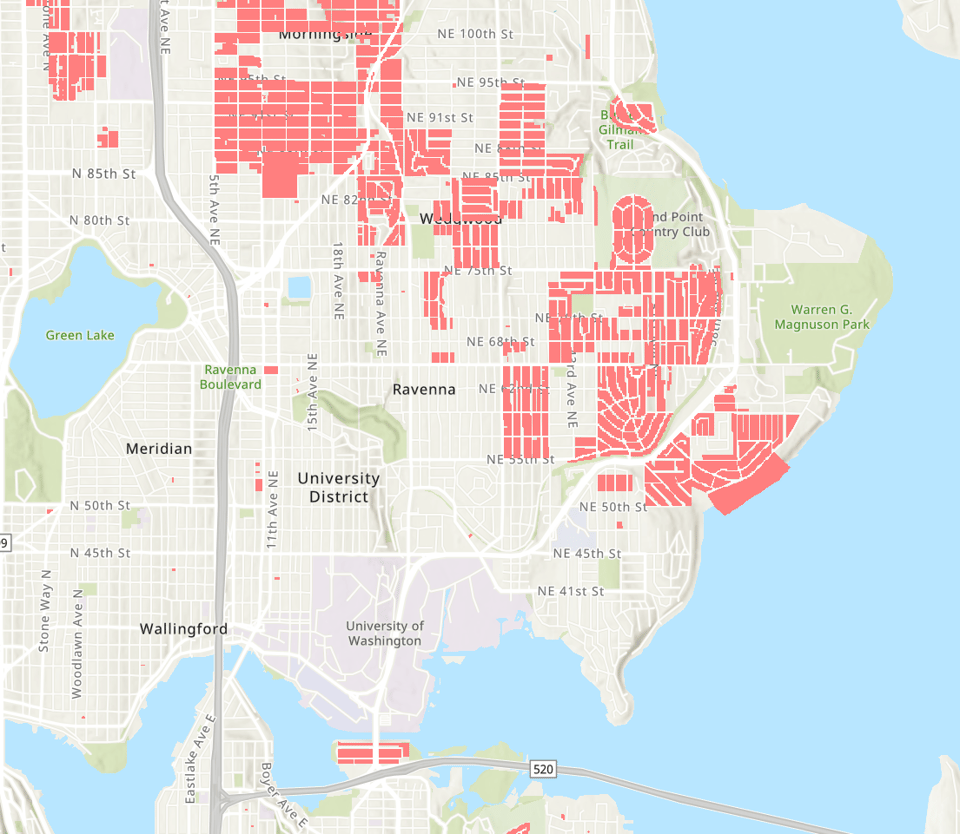Racial Restrictive Covenants Project: Recent Updates September
As the summer draws to a close (despite warm weather stubbornly clinging to Western Washington), the Racial Restrictive Covenants Project has been entering an exciting new phase of research and project development.
We Have Rented a High-speed Microfilm Scanner!
While King County has digitized property records up to 1929, the remaining records for the time period we are interested in are stored on roughly 1,000 rolls of microfilm. We have rented a new machine that will allow us to digitize this microfilm and search the remaining deeds for racial restrictions. Thank you to archivist Hannah Sookup and everyone at the King County Archives for helping make this a reality.

Typically, digitizing microfilm is a time-consuming process. However, our new scanner can scan an entire roll of film in under seven minutes. We have already scanned over 200 rolls. Once scanned, our team uses a computer program to format the digital images created by the scanner and convert them into the desired format.
Then, Nicholas, our programmer, runs the images through an Optical Character Recognition (OCR) program. OCR detects text in scanned documents, turning them into accessible electronic documents that can be searched for keywords.
After searching the scanned property records for racial language, we upload the images that we suspect contain racial restrictions to Zooniverse. There, volunteers verify whether or not the deeds contain racial restrictions and provide relevant information about the deeds for our mapping database.
With the unexpected speed of the microfilm scanner, we anticipate that we will have digitized the remaining King County property deeds in less than three months. The following step will be mapping the restrictions we discover, resulting in a comprehensive map of the historically restricted properties in King County.
Volunteer Updates
Thank you for subscribing to our newsletter and volunteering your time in person or on Zooniverse. As we digitize King County property records, we anticipate that we will upload thousands of documents to Zooniverse in the coming months. As such, we will be relying on volunteers more than ever!
If you would like to contribute to the project, please check out the Volunteer page on our website. Transcribing documents on our Zooniverse page is a remote, easily accessible way to earn service hours while contributing to a ground-breaking research project. Email us at wacovenants@gmail.com with proof of your volunteer time, and we will be happy to sign off on hours!
We now have 1,103 Zooniverse volunteers assisting us. Thank you all for your contribution to this project. We couldn’t do it without you!
We recently had an event with a team from Blue Origin in collaboration with Davis Wright Tremaine. Thank you to everyone at Blue Origin for volunteering their time to this project!
Thank you to Davis Wright Tremaine for all your work in organizing volunteer days for the project. You have been valuable in raising awareness about the project, and we are grateful for your dedication.
Nicholas, our programmer, estimates that keyword searches of the new scans have found over 1,000 new suspected restrictions so far. These documents have now been uploaded to the King County Set 4 module in Zooniverse.
As you work to transcribe documents on Zooniverse, if you have any questions feel free to use the Talk Board on the Zooniverse website, or send us an email at wacovenants@gmail.com. We are available for questions and eager to help!
Mapping Updates
One of our new team members, Liz, has been hard at work constructing new maps for the project’s website. These new maps will be more interactive and visually striking with new features that will enhance people’s understanding of racially restrictive covenants and how they have shaped Western Washington.

Preview of the new racially restrictive covenants map for King County We intend for the new maps to go live in mid-October, and they will display properties with racial restrictions in King, Pierce, Snohomish, Whatcom, Thurston, Kitsap, Island, Skagit, and San Juan counties.
Sophia, and another new team member, Sophie, traveled to Bellingham this month to look at property records from Jefferson and Clallam counties. Thank you to Alison at the Bellingham Regional Archives for helping us with our research. We did not find any racially restrictive covenants during our trip, but that does not mean they did not exist in these counties, or that these counties did not practice racial discrimination in other ways.
We’d like to welcome our new team members Liz Peng, Sophie Belz, David Cunningham, and Isabel Smith to the project.
Liz is a Master’s student at the University of Washington studying Geography with an interest in queer and feminist geography. As our GIS Specialist, Liz spearheads the design and development of the project’s new ArcGIS maps and dashboards.
Sophie is an undergraduate student at the University of Washington studying History and Labor Studies with a focus on race, gender, and power, David is an undergraduate student at the University of Washington studying Accounting and Korean, and Isabel is an undergraduate student at the University of Washington studying Journalism and Political Science with a focus on American politics. As research associates, Sophie, David, and Isabel are involved in project research, data management, and community outreach.
We hope you will continue to support the Racial Restrictive Covenants Project as we enter this new stage of research. Enjoy the rest of September!
Learn More About the Project
Racial Restrictive Covenants Project